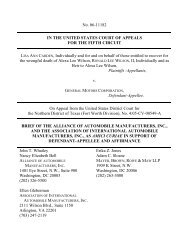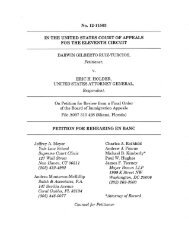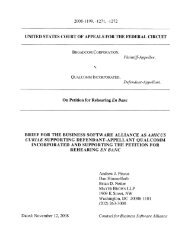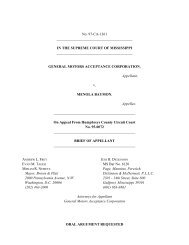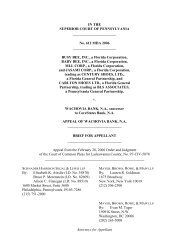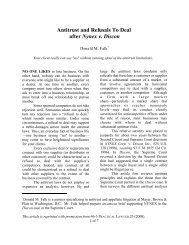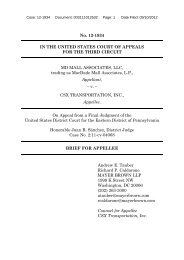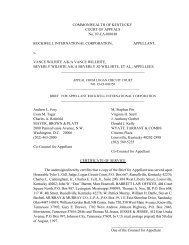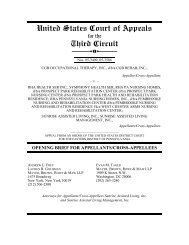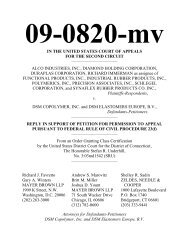No. 5-99-0830 IN THE APPELLATE COURT OF ... - Appellate.net
No. 5-99-0830 IN THE APPELLATE COURT OF ... - Appellate.net
No. 5-99-0830 IN THE APPELLATE COURT OF ... - Appellate.net
You also want an ePaper? Increase the reach of your titles
YUMPU automatically turns print PDFs into web optimized ePapers that Google loves.
(7th Cir. 1<strong>99</strong>5) (decertifying class action in part because the trial court sought to paper over<br />
variations in state law with an “Esperanto instruction” melding the laws of 50 states).<br />
B. The Circuit Court Abused Its Discretion In Concluding That Common<br />
Questions Predominated Over Individual Issues With Respect To<br />
Plaintiffs’ Consumer Fraud Claims.<br />
1. The Circuit Court Erred As A Matter Of Law In Concluding<br />
That There Were Common Issues Of Law.<br />
State Farm argued that a nationwide consumer fraud class could not be certified<br />
because, among other things, the claims of non-Illinois class members would be governed<br />
by the varying consumer fraud laws of 47 states and the District of Columbia. The circuit<br />
court rejected this argument, holding that common issues of law predominated because there<br />
were no “true conflicts” between ICFA and the consumer fraud statutes of other states and<br />
because, in any event, ICFA could properly be applied to the claims of all class members,<br />
no matter where the alleged deception occurred. A. 45-46. Both of those conclusions were<br />
wrong as a matter of law.<br />
First, the circuit court’s conclusory assertion, after several rounds of lengthy briefing,<br />
that there are no “true conflicts” among consumer fraud statutes is inexplicable. As one court<br />
observed in refusing to certify a nationwide consumer fraud class, “a brief review of the<br />
applicable statutes reveals . . . differing standards of proof, procedure, substance, and<br />
remedies.” Tylka v. Gerber Prods. Co., 178 F.R.D. 493, 498 (N.D. Ill. 1<strong>99</strong>8). That<br />
description is particularly apt when the defendant is an insurance company. In at least eight<br />
states, policyholders are not allowed to bring consumer fraud claims at all against insurance<br />
companies, but rather are required to seek remedies under the state’s insurance laws and<br />
-59-



